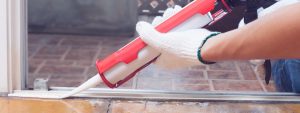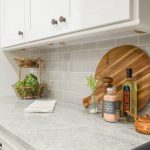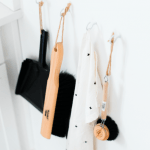Difference Between Grout and Caulk
To the untrained eye, it may seem like grout and caulk are pretty much the same product. They are often used in the same spaces, including bathrooms and kitchens, so they probably do the same job, right?
Unfortunately, this assumption is wrong. While grout and caulk are often used in the same areas, they are not the same product and can’t be used interchangeably. Below are the differences between grout and caulk.
 What Is Caulk?
What Is Caulk?
Caulk is a flexible, waterproof sealer that is often used where tiles meet another surface, such as where tiles meet the tub (in a bathroom) or tiles meet the wall or sink (in a kitchen).
Caulk can also be applied to pipes and drains to stop leaks from occurring, as well as on doors and windows to make them weatherproof.
More often than not, caulk comes pre-made and is often available in tubes that are placed into a gun and squeezed onto the intended area. It is great to use in areas that see a lot of moisture, and it won’t crack over time. It’s possible, however, that mold and mildew can grow on and in caulk.
What Is Grout?
More often than not, grout is used to fill the gap between tiles and to keep them in place. There are different types of grout, including sanded, non-sanded, and epoxy. Grout is an extremely porous material and will absorb bacteria, dirt, and grime. Unlike caulk, grout often doesn’t come pre-made and can be mixed on-site and have different colors added to match your style and décor.
When using the sanded and non-sanded options, you will need to seal the grout. Otherwise, it can be damaged by excessive moisture, and mold and mildew will grow. Epoxy grout doesn’t require grout sealing and can be used for both indoor and outdoor use. Unfortunately, this type of grout is not as durable as other types and you may find yourself making major repairs in just a few short years.
While both grout and caulk are important elements in bathrooms and kitchens, they are not the same product and are used for different purposes. If you have any questions about your grout or caulk, contact the professionals at the Grout Specialist. We can help you with your needs.




